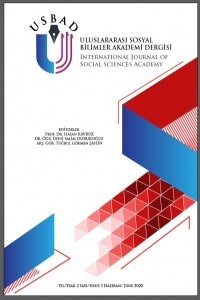
Uluslararası Sosyal Bilimler Akademi Dergisi
Yazarlar: Yusuf Abubakar WARA
Konular:Beşeri Bilimler, Ortak Disiplinler
Anahtar Kelimeler:Arab Spring,Egypt,Tunisia,Constitutional Process,Dictatorial Regime,Liberal Democracy
Özet: This research work adopts Hermeneutic (Interpretive) approaches to comparatively analyse the constitutional process between Tunisia and Egypt after the Arab Spring. However, where necessary the cause-effect relationships of the constitutional process will be examined. Even with the fact that the two countries share the same identity, culture, tradition, language, religion and are their constitutional processes were triggered with Arab spring; while Tunisia is tilting towards liberal democracy Egypt is re-falling into autocratic regime. In 2010 the revolution that started in Tunisia spread to other Arab countries and was significant in ending some elements of wanton injustices in the affected countries. Sequel to these developments the new leaders commence a new constitutional process in the affected countries. While in Tunisia with intensive negotiations of political parties and other concerned actors only a single constitutional amendment process was realized; In Egypt within the same time frame three consecutive constitutional amendment processes took place without reasonable deliberation and in a hectic manner. As a result, while in Tunisia`s aim of constitution process was not to return the dictatorial regime; in Egypt due to haphazard process and desire to have a strong leader made the country to slope into dictatorial regime.